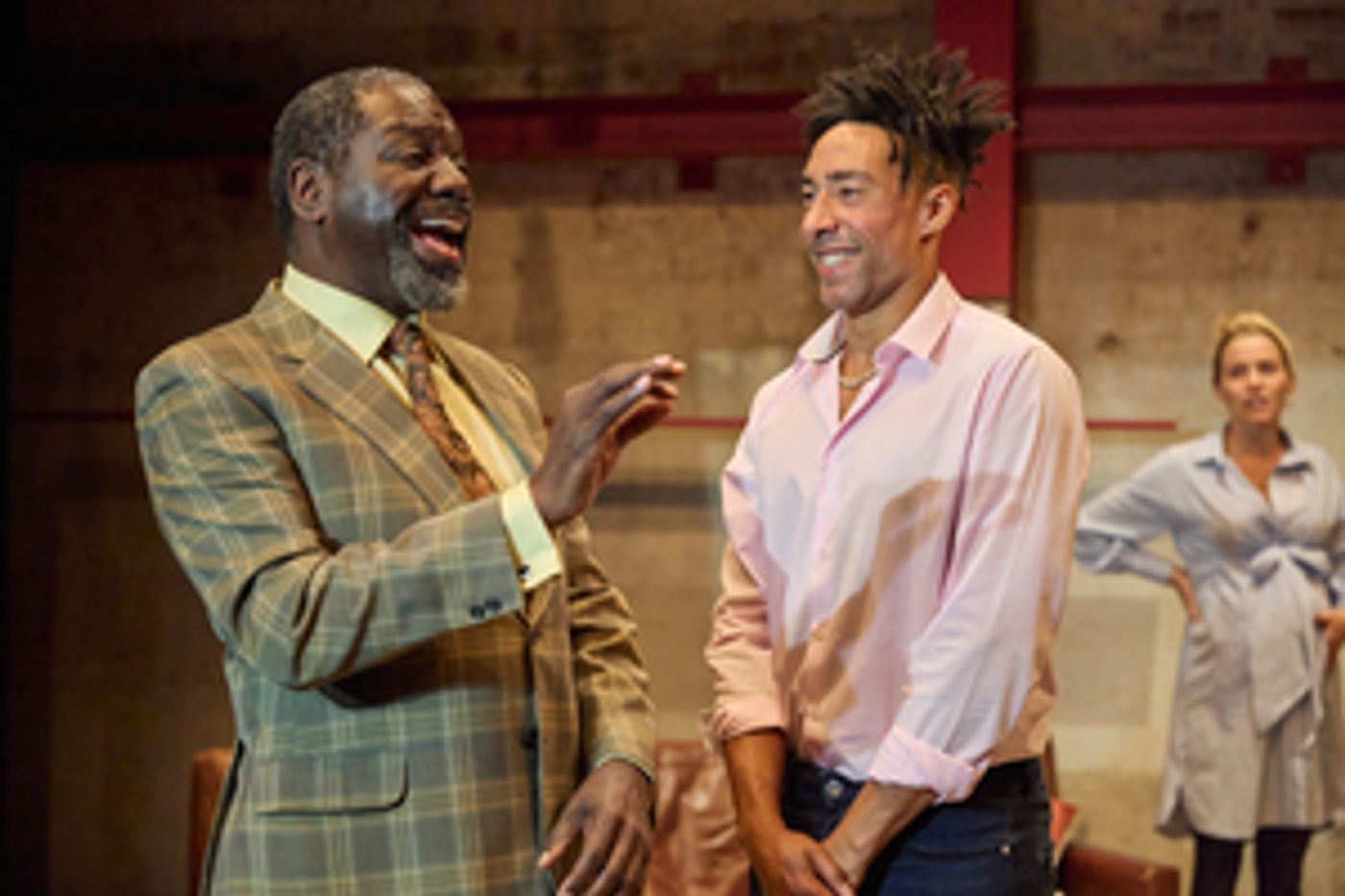Review: A PLACE FOR WE, Park Theatre
Clarence clings to his Trini identity while all around him, things are changing

![]() Clarence is old school, running his funeral parlour as his father did, serving Brixton's Trinidadian-heritage population with the traditional nine nights of mourning, revelling in his status as a pillar of the community. But he can see that things are changing: property prices are climbing, younger people - outsiders, professionals, white - are moving in, and that West Indians are not so West Indian any more.
Clarence is old school, running his funeral parlour as his father did, serving Brixton's Trinidadian-heritage population with the traditional nine nights of mourning, revelling in his status as a pillar of the community. But he can see that things are changing: property prices are climbing, younger people - outsiders, professionals, white - are moving in, and that West Indians are not so West Indian any more.
His son, Keron, sees it too, but, unlike his father, to him the gentrification of South London is not a threat but an opportunity, a chance to step away from a client-base that is literally dying off and to diversify the services offered. Clarence sees that too, but its challenge to his carefully constructed identity is more than he can accept and he digs in his heels.
On one level, we've seen much of Archie Maddocks' new play, A Place For We, before, most obviously in Galton and Simpson's timeless tragicomedy Steptoe and Son and in Lionel Bart's lament of for the post-war East End, Fings Ain't Wot They Used T'Be, but it's timely to update the generational conflict and ever-changing metropolis for the 21st century, layering on the additional complexities of race and class.
Act One sets up these issues beautifully, Laurence Ubong Williams charismatic and vulnerable as Keron, Clarence's son, champing at the bit to step away from his Trini roots and embrace unapologetically the city of his birth. His pregnant partner, Tasha (Kirsty Oswald), wisecracks in the background, but they know that their child will be neither black nor white, but "London" - an identity that ebbs and flows but that works for them and millions like them. There's wit and real edge to the exchanges and, though both men are stubborn, both men make their cases.
After a major reset in the interval (director, Michael Buffong, regularly had my heart in my mouth with the sheer volume of props that the cast brilliantly navigate throughout) we're back 50 years to see a young Clarence and his father acquiring their premises from a pub landlord as reluctant in 1971 to let go of the past as Clarence is in 2021. The script gets a little heavy-handed in driving home its points and, though both Blake Harrison and Joanna Horton are good, the scenes feel soapy and unnecessarily sentimental after so strong a first half.
The play misses the presence of Ubong Williams on stage in that second half, but we do get a lovely cameo from Harold Addo as the young Clarence. That said, David Webber, as the patriarch (patriarchs, as he plays Clarence's father, Elmorn, in 1971) holds the play together, angry, funny, brutal, sad, resigned and plenty more in-between. Webber brings out the multiple identities of Clarence and we see, as much in his reactions as his words, as to why he clings to the Trinidadian who was born in the cold mists of England so keenly. We also wince as we see even well-meaning, objectively benign comments and developments sink dagger after dagger into his Trini heart - amazingly so after he brushes off the more virulently racist attitudes thrown in his face in the Powell-influenced early 70s. It's award-worthy stuff from an actor on top of his game.
On leaving the theatre, I was struck by the changes wrought in the 36 years since I lived in Finsbury Park, many of them in the last five. A Picturehouse cinema and Gail's Bakery caught the eye, standing where once I would browse in a rundown Marxist bookshop. Having been on Keron's side in welcoming the change through which London has always travelled (and it's always been a bumpy road), I thought of the Clarences who have stayed round here since 1985 and what they might think. And I conceded that the Clarences had a point - and a better one than I thought but an hour or so earlier.
A Place For We is at the Park Theatre until 6 November
Photo Mark Douet
Reader Reviews
Videos

